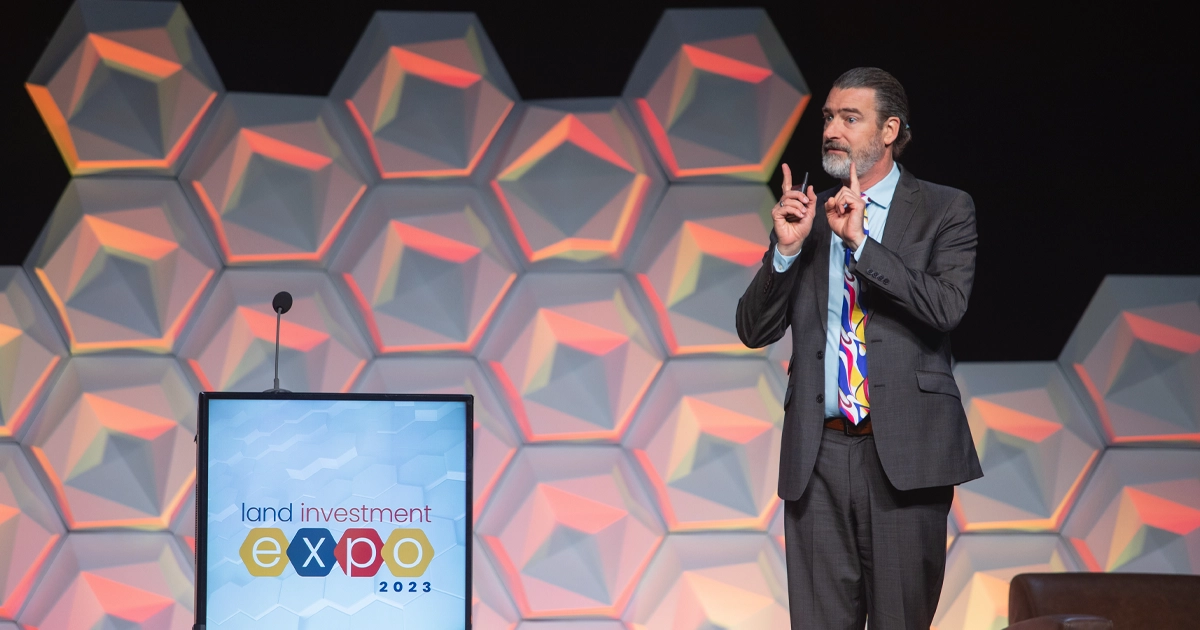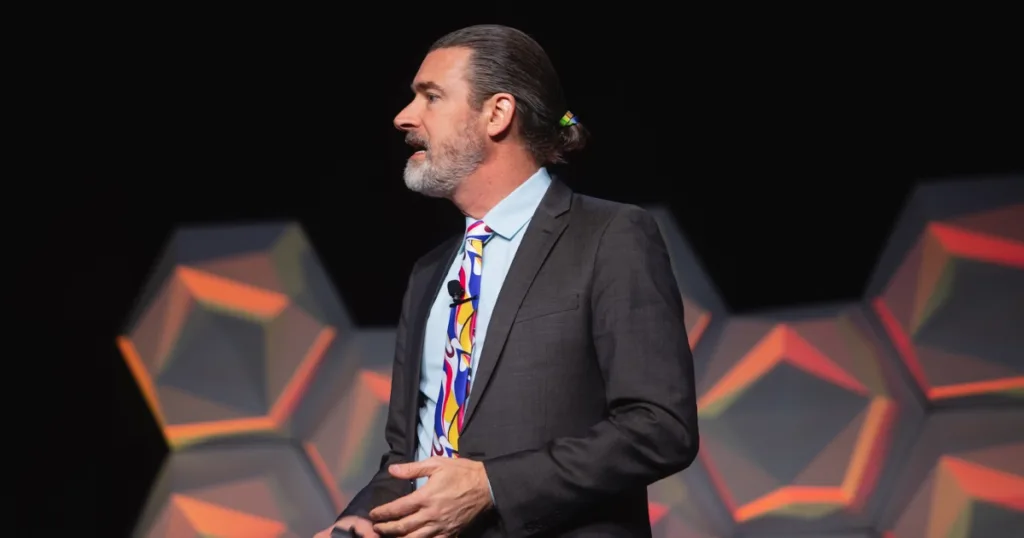Peter Zeihan Shares Geopolitical Forecast
Peter Zeihan Shares Geopolitical Forecast

LR_PeterZeihan-01
During his recent appearance at the 2023 Land Investment Expo, geopolitical analyst Peter Ziehan guided attendees through a fast-paced tour of global dynamics, including current and future trends in demographics, labor supply, trade, and farming.
Drawing on points echoed in his 2022 book, The End of the World Is Just the Beginning: Mapping the Collapse of Globalization, Zeihan advanced several sweeping predictions over the course of his hour-long presentation.
In one particularly candid moment, he told the crowd: “US farmers will try to feed the world. They will fail.”
Setting up this revelation was Ziehan’s detailed premise that other, less stable agricultural nations, like Brazil, will soon feel the ill effects of the world’s current, destabilized supply chains. These disruptions will lead to downward trends in worldwide agricultural production over the next few decades.
Specifically, Zeihan argued breakdowns in the shipment of key fertilizer ingredients such as potash and phosphate — due to Russia’s invasion of Ukraine and because of trade disruptions in China, respectively — mean countries with less stable agricultural bases will struggle to feed their own populations.
“This is a [projected] famine that will ultimately claim a billion lives,” Zeihan said.
In the midst of this turmoil, US farming will face a boom market.
“For the next 40 years, US agriculture is the sector in the country that is going to do the best in absolute and relative terms,” Zeihan said. “If you are going to expand, now is the time.”
Demographics
Zeihan began his presentation with a chart-rich look at worldwide population metrics.
As the birthrate has declined in the US, the workforce gap has grown. While the boomer generation was America’s largest ever, the zoomer generation — or Gen Z, those born between 1996 and 2010 — represents the smallest on record.
The gap last year between exiting boomers and entering zoomers in the job market was 400,000 workers. That will grow to a peak of 900,000 in 2034, Zeihan said.
Zeihan argued that while those statistics may sound alarming, the US labor supply will correct itself by around 2045. He stressed that from a workforce perspective, America is in far better shape than countries such as China, Japan, and Germany, which are witnessing, in his terms, a demographic “death-spiral.”

Geopolitics
Zeihan devoted ample time to discussing ways in which the war between Russia and Ukraine and political pressures between the US and China have disrupted supply chains worldwide. He offered several clear takeaways:
- With the disruption of the Nord Stream pipeline, Germany has lost access to 40 percent of the country’s natural gas supply. This disruption will disable the German manufacturing sector. “We’re looking at the end of the entire German manufacturing base within two years,” Zeihan said.
- The war will soon affect global fertilizer production because Russia is the world’s key source of potash.
- Fearing impacts from a potential African swine fever outbreak, China has pivoted to prioritize production of rice, its main source of food after pork. As a result, the country has drastically reduced exportation of phosphate, preferring to keep the mineral instead to fertilize its own rice fields.
- The dual disruption in worldwide phosphate and potash supply chains will lead to global agricultural productivity reductions, with potentially catastrophic results for less stable nations, as described earlier.
Energy Supply
Finally, Zeihan spoke at length about global allocation and distribution of oil and natural gas. The fact that the US sources an ample supply of its own energy from within its own borders gives it “options no one else has” going forward, Zeihan said. He added that the US has “the world’s largest, most diversified natural gas distribution system.”
When it comes to clean energy options, Zeihan is in favor of them — but only where they make sense.
“If you’re in the American Southwest, [solar is] great. If you’re in the Great Plains, wind is fantastic. We should do [clean energy] in those places,” he said. “But when I see solar panels going up in places like Eastern Idaho, a place with not great solar quotients, where it’s taking away prime farmland? That’s just idiotic.”




